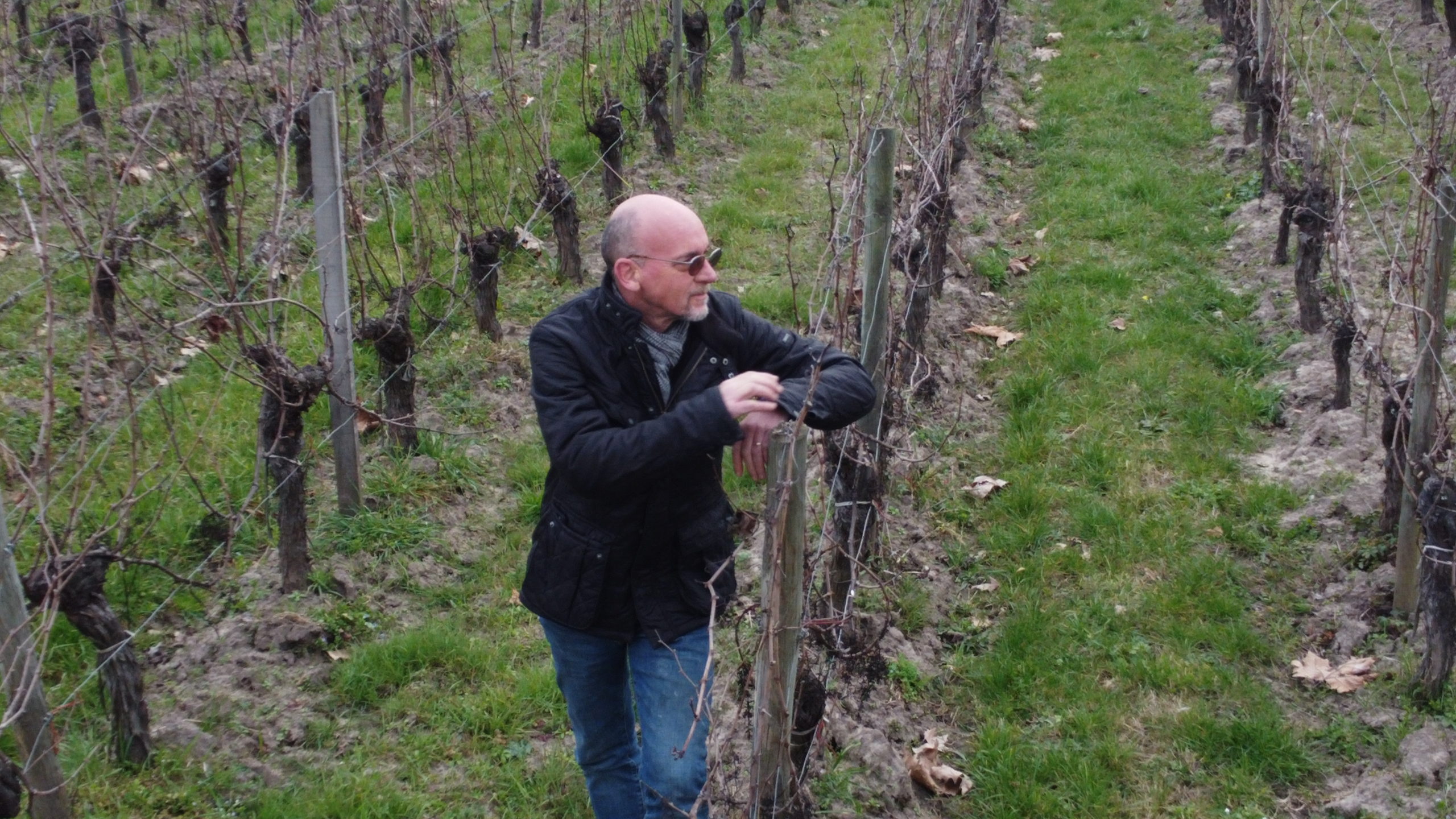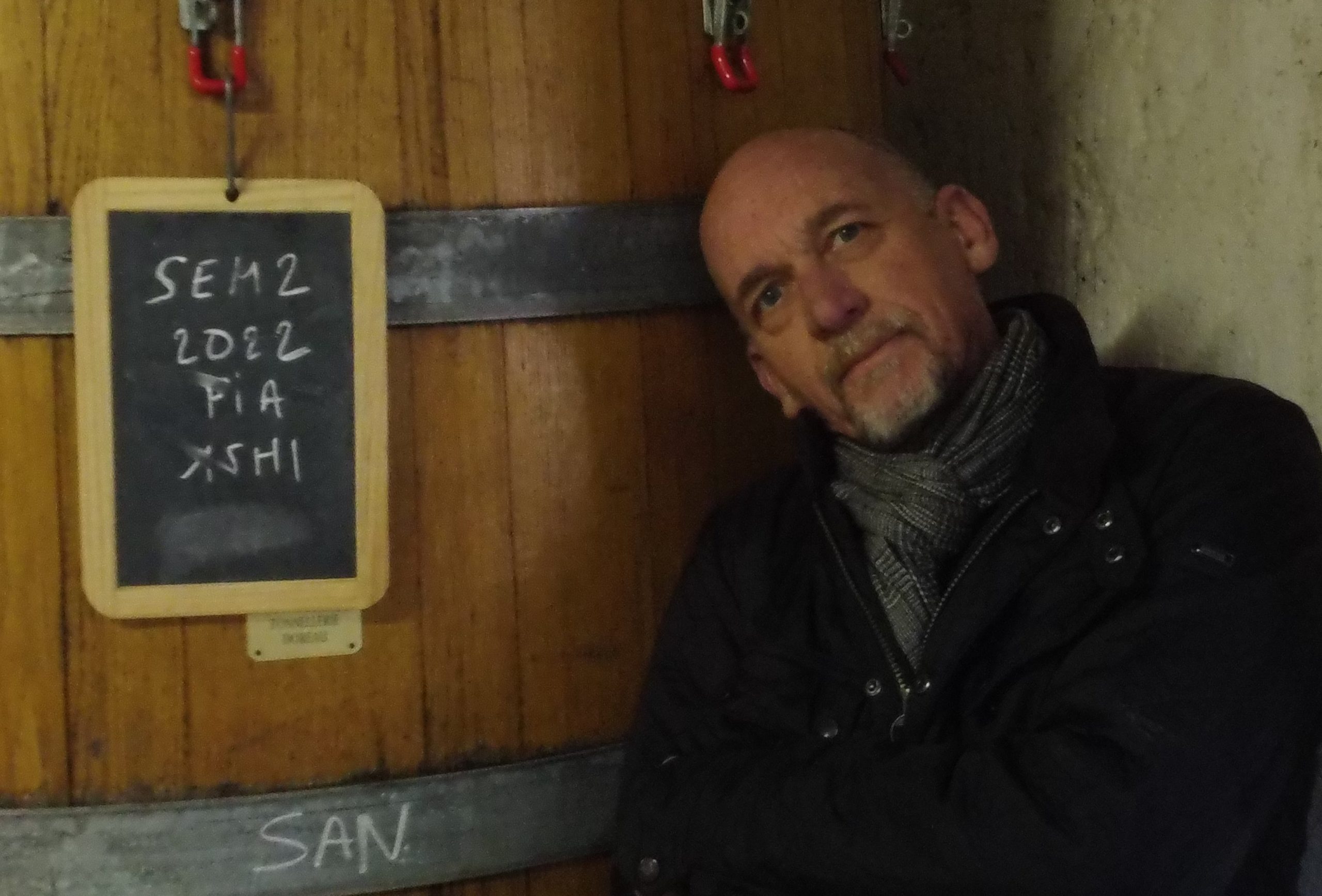


My role, like all winegrowers, is to look after the general state of the vineyard and to carry out all the manual tasks. Above all, I like to walk around and observe the surrounding biodiversity. The vineyard has been in organic conversion for 2 years but it has always been worked in this way since we have owned it, since 2001.
Pruning and green harvesting are for me the actions that have the greatest impact on the production of good grapes, and they are the ones I prefer to do.
The vinification remains the privileged moment that rewards a whole year of work. I particularly enjoy listening to the fermenting vats to understand what they are telling me and to know what I should do.

"I am quite satisfied that the jury rewarded a balanced, light and unpretentious wine. I am therefore very surprised, but very happy."
The property covers 3 hectares in Saint-Emilion, half of which is rented from a winegrower friend. It is entirely surrounded by hedges, trees and a stream. It is situated on a rather hydromorphic terroir made up of sand, iron dross and silt.
At first sight, these soils and subsoils are not very conducive to grow great wines, but with climate change, the Cabernet Franc and Sauvignon are becoming interesting. Since 2001, the Clos Antico has become our family property and we have spent some great moments there.
My intention is to make a fruity, appetizing and thirst-quenching wine with low alcohol content and little or no wood (never new). It is an easy buddy wine, to be shared at any time and which requires no ceremony.

During the 2020 lockdown, we decided as a family to rename our wine “Clos Antico”, go figure out why (formerly Clos l’Abba). We designed the label as a family, featuring our logo of an apple tree, half apple (in reference to our name Apelbaum), half grapes. We also decided to rename our wine each year (like a cuvée; 2018 lapsus, 2019 Paradoxe, 2020 Incidence) according to the year’s experience and to explain it on the back of our back label.
Personally I like this wine to start a meal, especially starters (so pretty much everything except shrimp or seafood). It prepares the taste buds for the more elaborate wines that will come later. I also like it with soft cheeses.
Thank you to all the teams who set up this challenge. In the life of a winegrower there are very difficult moments to bear. There are also many reasons to rejoice, especially when the fruit of one’s labours is rewarded and recognised. To be a winegrower is to learn every day to remain humble and to thank nature for what it gives us. To make wine is to translate the story of the year lived and to share it through a bottle. When it is appreciated, never pretend that we have anything to do with it.